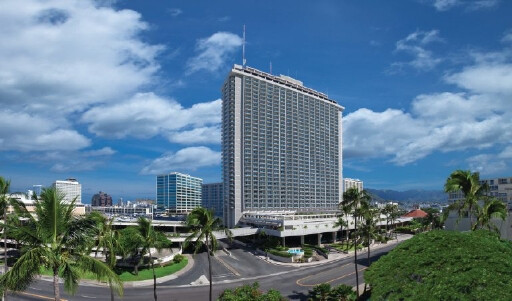
The allure of Hawaii's pristine beaches, volcanic landscapes, and vibrant culture may soon come with a steeper price tag for tourists. The Hawaii State Legislature has recently passed a landmark bill that will increase taxes on hotels, short-term rentals, and, for the first time, impose a levy on cruise ships. This legislative move, endorsed by Governor Josh Green who has pledged to sign it into law, aims to generate dedicated funding for the state's burgeoning efforts to combat the impacts of climate change and enhance its resilience against natural disasters.
The approved legislation introduces an additional 0.75% tax on the existing Transient Accommodations Tax (TAT), which currently stands at 10.25% for hotel rooms and short-term rental units. This incremental increase will push the state-level TAT to 11% effective January 1, 2026. Furthermore, in a move that has garnered attention from the cruise industry, the bill establishes a new 11% tax specifically targeting cruise ship passengers visiting the islands.
Notably, this tax initiative marks a significant precedent in the United States. Experts highlight that Hawaii is poised to become the first state in the nation to implement a dedicated tax specifically earmarked for environmental protection and climate change mitigation efforts. This bold step underscores the growing recognition of the urgent need for proactive measures to address the escalating threats posed by climate change, particularly for vulnerable island states like Hawaii.
Beyond the state-level TAT, visitors to Hawaii already face a layered tax structure. Each of the state's counties levies an additional 3% accommodation tax. Moreover, a 4.712% general excise tax is applied to virtually all goods and services purchased within the state, including lodging. Consequently, with the newly approved 0.75% increase in the state TAT, the cumulative tax burden for tourists staying in hotels or short-term rentals will reach a substantial 18.712% by the start of 2026. The introduction of the 11% cruise ship tax will add a similar layer of cost for those arriving by sea.
Governor Josh Green, a vocal advocate for environmental sustainability, framed the tax increase as a necessary investment in the state's future. In a statement following the bill's passage, Governor Green emphasized the long-term benefits of prioritizing environmental stewardship. "The more we invest in fostering good environmental policy and making our living spaces perfect," he asserted, "the more likely we are to have loyal, long-term visitors to Hawaii." This perspective suggests a belief that a healthy environment is intrinsically linked to a thriving tourism industry, and that short-term increases in costs are justified by the need to preserve the very natural beauty that attracts visitors in the first place.
The decision to target the tourism sector, a cornerstone of Hawaii's economy, for this climate change funding mechanism is not without potential ramifications. While proponents argue that tourists, as beneficiaries of Hawaii's natural resources, should contribute to their preservation, concerns have been raised about the potential impact on visitor numbers and the competitiveness of Hawaii's tourism market. The added costs could influence travelers' decisions, potentially leading them to explore more affordable destinations.
However, the urgency of addressing climate change impacts in Hawaii is undeniable. The islands are increasingly vulnerable to rising sea levels, coastal erosion, extreme weather events, and the degradation of coral reefs – all of which pose significant threats to the state's environment, infrastructure, and economy. The dedicated funding generated by the increased taxes will be crucial for implementing adaptation measures, investing in renewable energy infrastructure, and supporting conservation efforts aimed at protecting Hawaii's unique and fragile ecosystems.
The specific allocation of the funds generated by the tax increase will be a critical factor in determining its effectiveness. Transparency and accountability in how these resources are managed and deployed will be essential to ensure that they directly contribute to enhancing Hawaii's climate resilience and environmental sustainability. Investments in areas such as infrastructure hardening, natural disaster preparedness, and the protection of vital natural resources will be paramount.
The passage of this bill in Hawaii could also serve as a potential model for other coastal and island states facing similar climate change vulnerabilities. As the impacts of global warming become increasingly evident, the concept of dedicated environmental taxes levied on tourism or other relevant sectors may gain traction as a means of generating much-needed funding for adaptation and mitigation efforts.
In conclusion, Hawaii's decision to increase taxes on the tourism sector to fund climate change resilience initiatives represents a bold and potentially transformative step. While the immediate impact on tourism costs is a point of consideration, the long-term benefits of safeguarding the state's environment and ensuring its ability to withstand future climate challenges are paramount. This pioneering legislation underscores the growing recognition of the interconnectedness between environmental health and economic prosperity, and it sets a precedent that other regions grappling with the impacts of climate change may well observe with keen interest. The effectiveness of this initiative will ultimately depend on the prudent management and strategic allocation of the generated funds, ensuring that they translate into tangible improvements in Hawaii's resilience and the preservation of its invaluable natural heritage.
[Copyright (c) Global Economic Times. All Rights Reserved.]






























